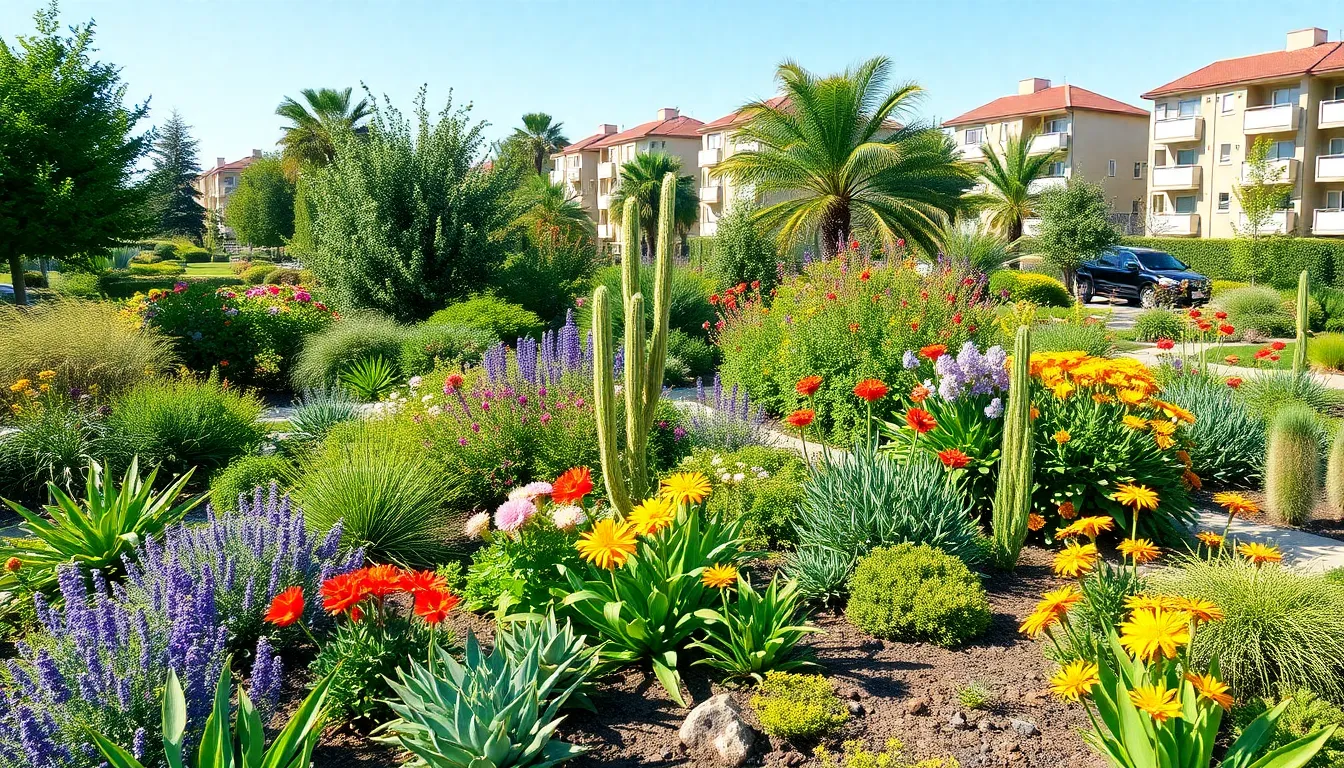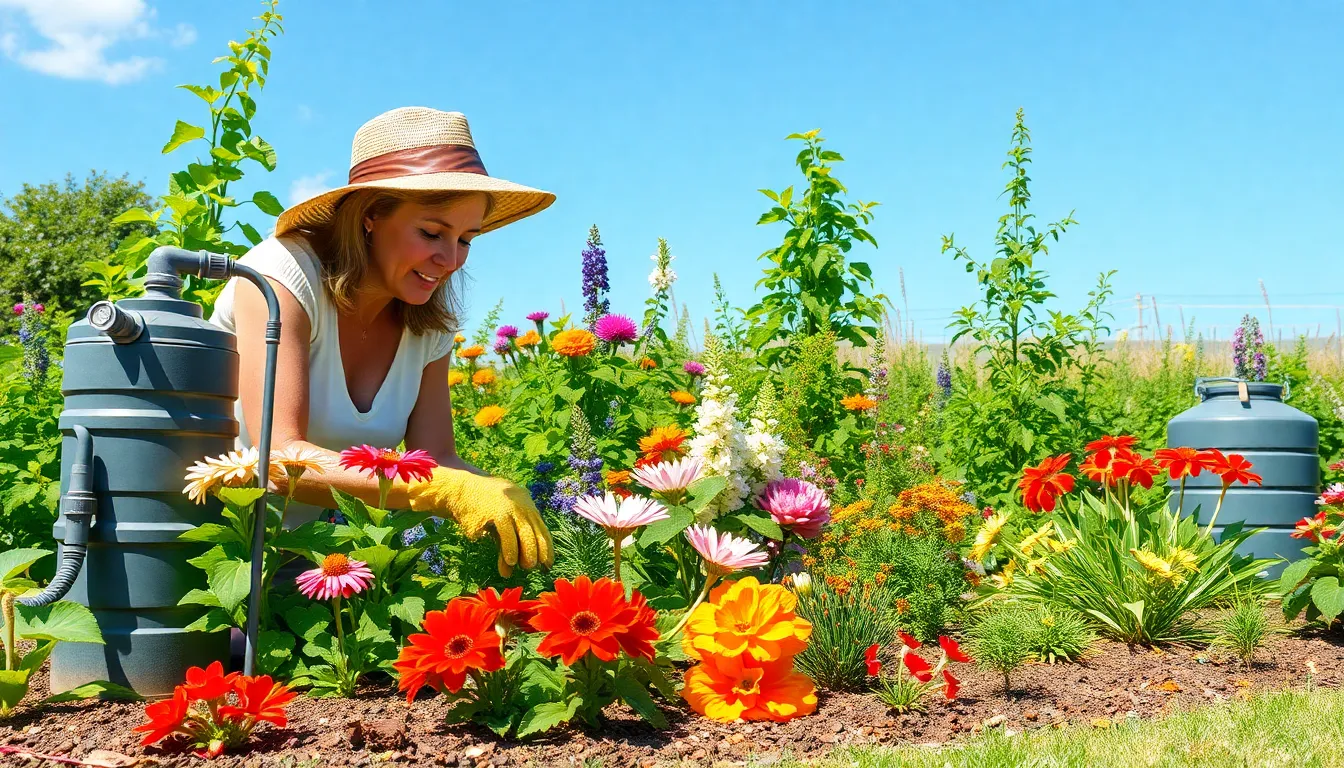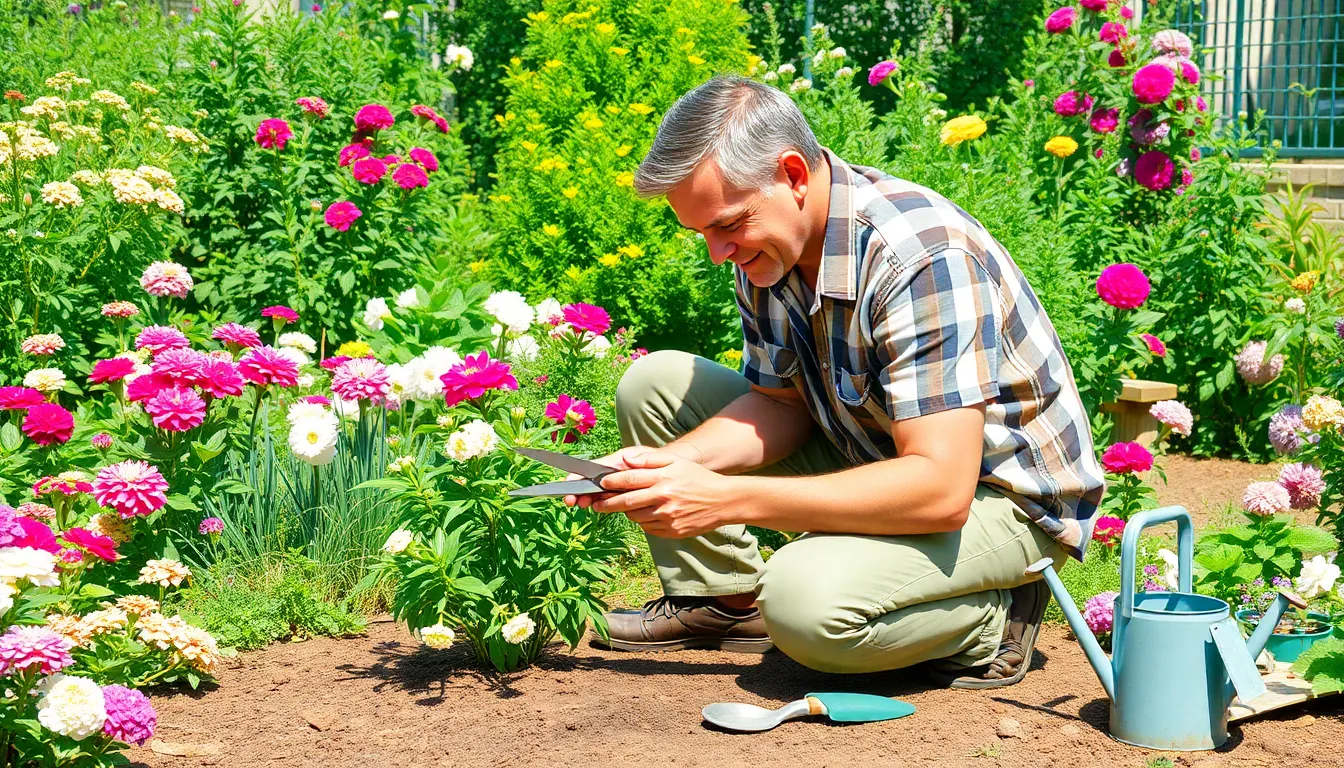Water is life, but when it comes to landscaping, it can feel like a double-edged sword. Picture this: a lush, green garden that’s the envy of the neighborhood, but behind the scenes, there’s a battle against droughts, floods, and the ever-elusive perfect irrigation system. Enter landscape water management, the unsung hero of outdoor aesthetics. It’s not just about keeping plants alive; it’s about creating a sustainable oasis that thrives in harmony with nature.
Table of Contents
ToggleOverview Of Landscape Water Management
Landscape water management encompasses techniques aimed at optimizing water use while supporting plant health and biodiversity. Efficient management remains crucial in addressing challenges like droughts and floods. It integrates a blend of practices tailored to local climates and plant requirements, ensuring sustainable landscapes.
Several core strategies exist within this management framework. Rainwater harvesting captures precipitation for use in irrigation, effectively reducing reliance on municipal water sources. Drip irrigation delivers water directly to plant roots, minimizing waste and promoting healthy growth. Xeriscaping incorporates drought-resistant plants, significantly lowering water consumption in arid regions.
The adoption of permeable paving materials facilitates better water absorption and reduces runoff. Such surfaces allow rainwater to percolate into the ground, replenishing groundwater supplies and preventing erosion. Creating bioswales and rain gardens further enhances water retention, enabling landscapes to manage excess runoff effectively.
Regular monitoring of soil moisture levels plays a vital role in landscape water management. This data informs decisions on irrigation timing and quantity, thereby conserving water while supporting plant vitality. Additionally, education on best practices empowers individuals and communities to implement sustainable approaches.
Successful landscape water management contributes to resilient ecosystems and vibrant outdoor spaces. By integrating these strategies, individuals create landscapes that thrive while effectively utilizing water resources.
Importance Of Effective Water Management

Effective water management plays a vital role in maintaining ecosystem balance and promoting sustainability. This practice directly influences various environmental and economic factors.
Environmental Impacts
Effective water management minimizes adverse environmental effects. It enhances biodiversity by providing suitable habitats for flora and fauna. Rainwater harvesting techniques reduce runoff, which lessens soil erosion and sedimentation in water bodies. Implementing drip irrigation conserves water and prevents over-saturation, fostering healthier plants and reducing disease risk. Xeriscaping promotes drought-resistant landscapes, which maintain plant health with limited water resources. Sustainable practices mitigate floods by allowing rainwater to infiltrate the ground, replenishing aquifers and preserving natural hydrology.
Economic Considerations
Economic factors strongly connect to effective water management. Reduced water consumption lowers utility bills for homeowners and businesses, leading to significant savings over time. Investing in efficient irrigation systems can increase crop yields in agriculture, enhancing food security and farmer profitability. Communities benefit from the reduced costs associated with stormwater management and flood damage. Furthermore, sustainable landscape management practices boost property value by creating attractive outdoor spaces. Savings generated through responsible water use can be redirected towards further environmental initiatives, creating a cycle of economic and ecological benefits.
Best Practices In Landscape Water Management
Effective landscape water management techniques enhance plant health while optimizing water use. Implementing best practices promotes sustainable ecosystems and limits waste.
Irrigation Techniques
Employing efficient irrigation techniques ensures precise water delivery to plants. Drip irrigation systems minimize evaporation and runoff, directing water straight to the roots. Soaker hoses also allow for gradual water penetration, preventing soil erosion and promoting healthier plants. Scheduling irrigation for early mornings reduces evaporation losses, maximizing water availability. Utilizing smart irrigation controllers adjusts watering frequency based on real-time weather data, optimizing water use. Regular maintenance of irrigation systems prevents leaks and inefficiencies.
Rainwater Harvesting
Rainwater harvesting captures rainwater for later use, significantly reducing dependency on municipal water sources. Installing collection systems on roofs enables homeowners to gather large volumes of water for landscape irrigation. Storage tanks can hold harvested water, providing a sustainable alternative during dry periods. Implementing filtration systems ensures clean water, making it safe for garden use. Utilizing diverted downspouts directs water into storage, minimizing surface runoff and erosion. Communities can greatly benefit from rainwater harvesting, enhancing water security and conservation efforts while supporting local ecosystems.
Innovative Technologies And Solutions
Advancements in technology revolutionize landscape water management, making it easier to conserve water and promote sustainability. Implementing these innovative solutions maximizes efficiency and benefits both ecosystems and communities.
Smart Irrigation Systems
Smart irrigation systems utilize sensor technology to monitor soil moisture and weather conditions. They adjust water delivery based on precise needs, reducing waste while ensuring plants receive adequate hydration. Controllers connected to weather forecasts help automate scheduling, preventing overwatering during rainfall. Additionally, these systems can optimize irrigation for different plant species, supporting diverse landscapes with varying needs. Using smart technology leads to a significant reduction in water usage by as much as 30% to 50%, aligning with sustainable practices.
Water-Saving Devices
Water-saving devices contribute to efficient landscape water management by minimizing consumption. Drip irrigation systems deliver water directly to roots, significantly reducing evaporation and runoff. Rain barrels capture and store rainwater, making it available for future use in gardens and landscapes. Flow restrictors and timer systems further enhance efficiency, ensuring that water flows only when necessary. These devices can lead to water savings of up to 70% compared to traditional methods. Incorporating these technologies fosters healthier plants and a more sustainable environment.
Case Studies Of Successful Implementation
Successful landscape water management showcases effective strategies across different settings. Various case studies illustrate these approaches.
Urban Environments
Urban areas benefit significantly from landscape water management practices. In cities like Melbourne, Australia, green infrastructure such as rain gardens captures and filters excess stormwater. This practice enhances water quality while promoting biodiversity. Another example includes San Francisco, where cistern systems collect rainwater for reuse, reducing pressure on municipal water supplies. Smart irrigation technologies play a key role, adjusting based on real-time weather data. These systems contribute to water savings of up to 50%, demonstrating the potential for urban sustainability.
Agricultural Landscapes
Agricultural landscapes implement landscape water management for improved efficiency. In California, farmers increasingly adopt drip irrigation systems, delivering water directly to plant roots. This method reduces evaporation losses significantly, achieving water savings of 30% to 70%. Additionally, on-farm rainwater harvesting systems store runoff for irrigation during dry seasons. This practice not only conserves water but also boosts crop yields. Crop rotation and cover cropping further enhance soil health and moisture retention, integrating sustainable practices into modern farming. These strategies highlight the effectiveness of landscape water management in agriculture.
Effective landscape water management is essential for creating sustainable and thriving outdoor environments. By implementing innovative techniques and practices, communities can address water scarcity and enhance biodiversity.
Utilizing smart irrigation systems and rainwater harvesting not only conserves water but also promotes healthier ecosystems. The benefits extend beyond environmental health, impacting economic factors such as reduced utility bills and increased property values.
As more individuals and organizations adopt these practices, the potential for resilient landscapes grows, paving the way for a future where nature and human needs coexist harmoniously. Prioritizing landscape water management is a crucial step toward a sustainable and vibrant environment for all.



